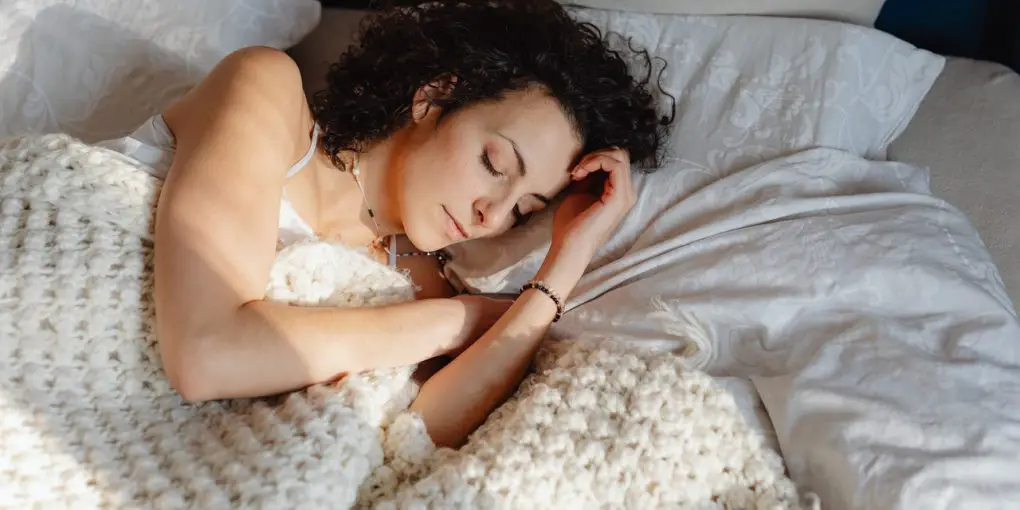9 Effective Sleep Tips to Manage Your Insomnia
Since the beginning of human history, it has been well understood that securing a restful night’s sleep is essential for both mental and physical health.
A good night’s sleep improves academic and athletic performance and increases levels of focus, productivity, and psychological stability, among other things!
Sleep is crucial for several reasons. So we came up with a list of things you can do right now to ensure you get a decent night’s sleep.
Maintaining a Regular Sleep Routine
Allow yourself no more than eight hours of sleep at a time to get things done. At the very least, adults should get at least seven hours of sleep each night. Most individuals can achieve this need in little more than eight hours of sleep.
Ensure that the time gap between your weekend and weekday sleep schedules is no more than an hour. Again, consistency is key to aiding your body’s sleep-wake cycle.
Do something to calm yourself if you can’t fall asleep in 20 minutes. For example, listen to quiet or soothing music as you read. Take a nap if you’ve had enough of being up all night. It’s OK to repeat the procedure as many times as necessary.
Keep an Eye Out for What You Eat and Drink
Avoid overeating or feeling filled before going to bed. The most important thing to remember is to avoid heavy or oversized meals within a few hours of going to bed. Discomfort might keep you awake at night.
Caffeine, alcohol, and nicotine are all harmful substances that should be avoided at all costs. Even though alcohol may make you feel fatigued, it may also interfere with your sleep later in the evening.
Avoid Taking Unnecessary Naps
Daytime naps might make it challenging to get a good night’s sleep at night. Limit yourself to no more than 30 minutes of snoozing at a time, and avoid sleeping late in the afternoon.
However, if you work at night, you may have to take a nap to make up for lost sleep during the day.
Add Physical Exercise to Your Daily Schedule
A healthy diet and regular exercise might help you sleep better. However, avoid exercising too close tonight.
Before you go to sleep, find a strategy to cope with your fears and problems. Please make a list of everything on your mind and preserve it for the following day.
Stress management may be effective. Organizing, setting priorities, and delegating chores are good places to start. In addition, anxiety may be reduced by the practice of meditation.
Take Care of Your Oral Health
Before you go to sleep, brush your teeth. Plaque buildup, dental decay, tooth decay, and gum disease may all be prevented if you brush your teeth before you go to sleep each night. According to Enamel Republic, a team of Dentists in Kitchener, “Brushing your teeth shortly after breakfast and before bed can save you from the risk of developing gum disease or cavities.”
Don’t Fall Asleep After Eating
Premature tiredness might be a sign that you’re nearing the end of your workday. Instead of relaxing on the couch, engage in a stimulating activity, such as washing the dishes, calling a friend, or getting ready for the next day. If you succumb to tiredness, you run the risk of waking up later in the night and having trouble falling asleep again.
Practice Mindfulness
The last piece of the jigsaw for better sleep may be mindfulness. Mindfulness and sleep have a strong connection, just like eating and exercise.
If you’re having trouble sleeping, mindfulness meditation may be able to help. It’s a way to enhance attention, raise awareness of events and thoughts, and decrease stress.
Mindfulness is a fantastic approach to manage anxiety, stress, depression, weight loss, relationship troubles, and productivity. In addition, it’s being hailed as the best way to deal with insomnia.
Choose the Appropriate Beddings
To have a good night’s sleep, you need a good mattress and pillows. However, it’s up to you whether or not they’re hard or soft. Your favorite sleeping position will influence the sort of pillow you choose. For example, when sleeping on your side, the pillow you pick should support your neck, head, ear, and shoulder, which is how most people like to sleep. On the other hand, back sleepers might use a smaller cushion to alleviate the stress on their necks.
Declutter Your Sleeping Room
An untidy bedroom may indicate a higher chance of developing sleep problems, even if you’re dreaming about cleaning it up. According to a study presented at the Sleep Conference in Seattle, those who live in crowded quarters are more prone to have sleeping difficulties. In addition, when you enter a room, the way your eyes seem might determine how simple it is for you to fall asleep. So it’s time to get your house in order as some of our parents would tell us.


